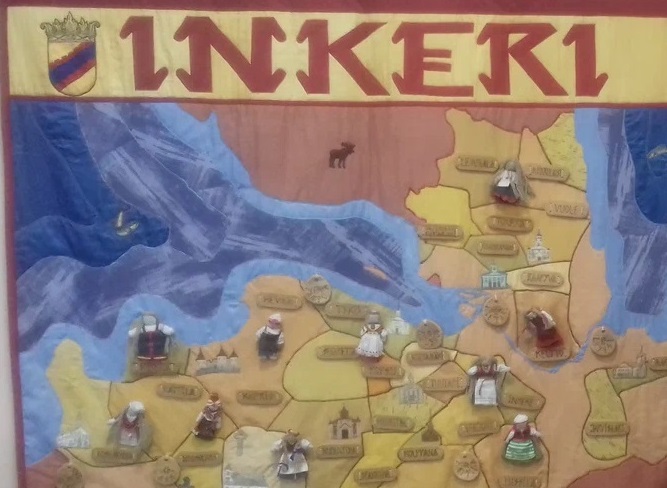The memory of Russian Ingria
Susanna Parkkinen, a girl from the Baltic region of Ingria, decided to open a museum of the diaspora of her native people in a small village in Finland. "I'm not doing it because I have separatist tendencies; we never felt part of the Soviet or Russian world. I just want to go back to my roots."
Helsinki (AsiaNews) - A Russian girl originally from Ingermanlandia, the Russian name for the Baltic region of Ingria, Susanna Parkkinen, has decided to open a museum of the diaspora of her native people in a small village in Finland, restoring an enormous building historical.
Ingria extends in the areas along the Neva river basin, on whose estuary in the Gulf of Finland St. Petersburg was built, and the Narva river up to Lake Ladoga, bordering the Russian region of Karelia and affecting the entire Russian area that lies overlooks the Baltic Sea.
The Ingermanlandi, or Ingrians, have never formed an autonomous nation, except for a short period in the year 1920, when a part of Ingria intended to reunite with Finland, and the descendants of this ethnic group are now reduced to a few hundred people.
The village of Puykkola, where Susanna's project is being developed, is 12 kilometers from the northernmost city in Finland, Kemijavri, and on the shore of a small lake there is a large house, painted in the typical Falun red colour. Parkkinen explains that the raw material to obtain this color is found only in Sweden, and is very effective in protecting the wood from the great cold of the north, so it then also spread to Finland.
The entire village is part of a protected area, with the formula of the "typical northern Finnish landscape", and Susanna's house is also under the protection of the State, dating back to the mid-19th century, but with the possibility of carrying out restorations .
Three years ago Susanna moved here from the Leningrad province to open the museum there. Despite being born near St. Petersburg, she considers herself only an "ingra", not a Russian: "I don't do it because I have separatist tendencies, but as a form of escape to return to my origins... in my family we have never felt part of the Soviet or Russian world, we felt different."
Before her, her father, Pavel Parkkinen, has always been an activist of "ethnic restoration", trying to resurrect the Ingrain culture from the underground, and was the first president of the "Ingermanland Union", Inkerin Liitto.
The idea of the museum it was passed down to subsequent generations by elderly relatives, and many projects were discussed. The last attempt to open one in Russia dates back to a few years ago, in the village of Tajtsy, where a wooden house with a library has also been preserved, which was rented for a certain time, with the promise of entrusting it for at least 50 years. Funds were raised and a restoration began, but the lease was not then renewed, without refunding the money spent; then Susanna decided to look outside the borders.
There was availability in Lapland, but Susanna and her friends discarded the idea, as it is not the true homeland of the Ingri. It would have been a shared museum for the many small Finno-Ugric nationalities of the region: the Finns of Murmansk, the woodland Finns of Sweden, the Kvens and other related ethnic groups, such as the Karely, the Izhora, the Vod', Vepsy and Saami.
So the choice fell on this house, built by Swedish soldiers during the Winter War, collecting antique tools and furniture from everywhere, even if many things had been preserved by the owners; The ancient large Tchaiknik was brought from Russia, the tea kettle that stands above the central stove of the inhabitants' gathering room.
Parkkinen does everything with her money and strength, after leaving the construction company that she managed, trying to put into practice the many indications passed down by her father, who, despite his advanced age, still supports her daughter in her feat.
In the restoration of ancient Ingermanland, as Susanna explains, the main stimulus is the idea of redemption from the many repressions suffered by its people in the past, but also the hope of a rebirth in the future, not only of the small Ingri people, but of all the peoples of the great north, and of all Russia.
08/02/2018 10:48







.png)










